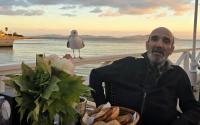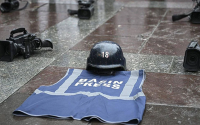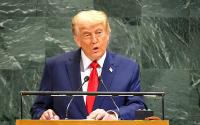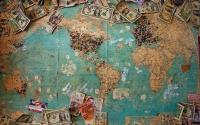26 June 2005By Jodie Evans
The hall is abuzz with the thrill of full-page spreads on the front page of every newspaper in Istanbul, and the woman next to me says with a smile that we are also on the BBC. The bank of cameras and the swarm of photographers have filled the room again this morning. Still absent at the World Tribunal on Iraq is any sign of the US media, except the cameras of Deep Dish TV. The website got 15,000 hits from more than 100 countries.
As the spokesperson for the Jury of Conscience, Arundhati Roy said earlier in the week, "This is what resistance looks like; if we don't show those who resort to violence alternative methods, it will be one of our failings."
For they have been forced to resist an illegal invasion of their country, what would we do if they didn't resist? Our joining together to witness the facts and the experience of those living in Iraq, and to see this jury's evaluation within a void, where there is no rule of law -- this is our act of resistance. But it is yet another non-event in the USA.
The mood quickly changed from the thrills of approval as Dahr Jamail began his stories of torture in Iraq by the US military. The hall was in deep grief within moments. He showed photo after photo of the tragedies in Iraq. Photographs of torture and of families that have been left without aid, and of the appalling conditions in the hospitals and the streets if Iraq.
A group from Japan indicated their opposition against the use of overpowering weapons by listing the number of illegal weapons dropped on Iraq by the US/UK, and their anger with the Japanese government for agreeing to join Bush in invading Iraq. The act violated Article 9 of the Japanese constitution -- to never invade another country.
Dr. Thomas Fasy of Mt. Sinai Hospital in New York led us through a report with charts and graphs describing the rise in cancer in Iraq since the use of depleted uranium during the first Gulf War, the new nuclear weapon of choice that has horrific consequences. Leukemia had risen 450 percent in children under the age of 5 since 1990.
Fasy's testimony reminded me of 5-year-old Atarid, whom we met in Iraq before the invasion. He had already lost all of his hair and had a very sweet smile, but couldn't get the care available to children in the US because cancer therapies were not allowed under sanctions in Iraq. He was sent home to die and to make room for those wounded from the shock and awe that was about to descend on Iraq.
Denis Halliday, who had resigned his position as UN Humanitarian Coordinator in Iraq in protest of the Iraq sanctions, completed the morning's session. He enumerated all the ways in which the UN had failed at its job, both at the level of the UN Security Counsel, the Secretary General and the members. He had watched the US destroy Iraq's potential, simply because it was no longer a useful friend, and set a pattern of militaristic aggression toward the people of Iraq that continues today.
He spoke about the rights of Iraqi self-defense and resistance to foreign military occupation, as set out in UN Charter Article 51, but added there is nothing glorious about killing, "be it of the enemy, or of one's own country-men and women who decide, for whatever reason, to collaborate."
The day continued with testimonial after testimonial from the many brave Iraqis who came to share their stories. By the late afternoon many of the jurors were in tears.
We had sat yet again through nearly 12 hours of testimony. There was no question that the UK and US were guilty of an illegal, immoral and unjust war -- the case had been proven over and over. Nor was there the need to question the Iraqis' right to resist. Of course they had the right if the invasion was illegal. Now the question had become: what do we do about it?
Were we as anti-war activists in the US really resisting? And if not, what would have to change? What do you do with an administration that has degraded the rule of law?
The Tribunal was just the beginning of filling a void. A void created because all the governing bodies that should be carrying out this task, or should have prevented the horror in the first place, have been rocked to sleep, or bound and gagged. We the people need to continue to stand up and not complain about what is lacking, but to fill the voids as citizens -- not just of the United States but of the world.
We must begin by really standing with the Iraqi people and defending their right to resist. I can remain myself against all forms of violence, and yet I cannot judge what someone has to do when pushed to the wall to protect all they love. The Iraqi people are fighting for their country, to protect their families and to preserve all they love. They are fighting for their lives, and we are fighting for lies. We must get out of Iraq now. They will rebuild their country, it will take time, a long time, but they cannot start until we are gone.
I encourage you to visit www.worldtribunal.org, share it with everyone you know, read the testimonies and deepen your knowledge of the facts and the stories from Iraq. Then, join us in action on July 4 as we celebrate and remember the values of our country that are daily being trampled upon by the thugs in power.
Jodie Evans is a co-founder of Codepink: Women For Peace.
http://www.alternet.org/story/22308/






